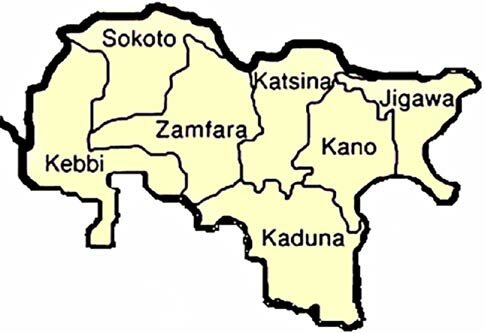Mitigating security concerns in Northern Nigeria
Security concerns in Northern Nigeria have been longstanding issues that have significantly impacted the region’s stability and development. This is exacerbated by corruption, absence of good governance and incompetence. The origin of these concerns can be traced to various factors, including conflicts, ethnic tensions, economic disparities and religious extremism. For instance, the Boko Haram insurgency […]

Security concerns in Northern Nigeria have been longstanding issues that have significantly impacted the region’s stability and development. This is exacerbated by corruption, absence of good governance and incompetence. The origin of these concerns can be traced to various factors, including conflicts, ethnic tensions, economic disparities and religious extremism. For instance, the Boko Haram insurgency in the North East which commenced in the early 2000s has posed a significant security threat to the region, leading to the current state of banditry and kidnapping, resulting in widespread violence and displacement of communities.
The Boko Haram insurgency has not only caused direct harm through attacks on civilians and security forces, but also infiltrated educational institutions, with the abduction of schoolgirls, like the infamous Chibok girls. This act not only instilled fear in the hearts of many families, but also highlighted the vulnerability of schools and educational infrastructure in the region.
A different scenario is playing out in the North West, where kidnapping, banditry and rustling are the order of the day. The situation is attributed to herder-farmer clashes, control of gold and deposits of other mineral resources. In the case of the North Central, ethno religious clashes and herder-farmer clashes reign supreme.
Looking into all these, it is clear that urgent intervention is imperative. Unfortunately, the issue is becoming increasingly convoluted due to the alleged involvement of high-ranking individuals for self-serving purposes. The insurgency’s impact extends beyond physical violence, as it has also disrupted healthcare services, making it challenging for vulnerable populations to access medical assistance.
- ‘Calabar prison deaths linked to illness, old age, not malnutrition’
- Kwara pastor, wife, son arraigned over student’s death, tampering with evidence
Apart from armed groups, issues such as poverty, unemployment and inadequate infrastructure have also contributed to the security challenges in Northern Nigeria. The dearth of economic opportunities has rendered many young individuals susceptible to recruitment by extremist organisations, further complicating the scenario.
Furthermore, the region’s porous borders render it vulnerable to cross-border crimes like arms and drug trafficking, adding another dimension to the security landscape.
In addressing these security concerns, a comprehensive approach is essential. This involves not only enhancing security measures, but also tackling the root causes of instability. Initiatives aimed at fostering social inclusion and investing in education and employment creation can play a pivotal role in addressing the underlying grievances that fuel insecurity. By promoting economic development and social cohesion, it is possible to build resilience within communities and reduce the likelihood of conflict.
Mitigating security concerns in Northern Nigeria requires a multifaceted and holistic approach. By delving into the root causes, confronting the challenges head-on, and implementing sustainable solutions, a more secure and stable environment can be established for the populace of Northern Nigeria. Through concerted efforts and strategic interventions by apprehending the bandits, their sponsors, and meting out appropriate punishment, the region can move towards a future where security concerns are minimized, and development can thrive. The collaboration between local communities, government agencies, and international partners is crucial in ensuring a coordinated and effective response to the complex security issues facing Northern Nigeria. By addressing the underlying socio-economic factors, promoting interethnic dialogue, and strengthening law enforcement capabilities, a sustainable peace and security framework can be established in the region, paving the way for long-term stability and prosperity.
Bello Gwarzo Abdullahi wrote from Gombe.
